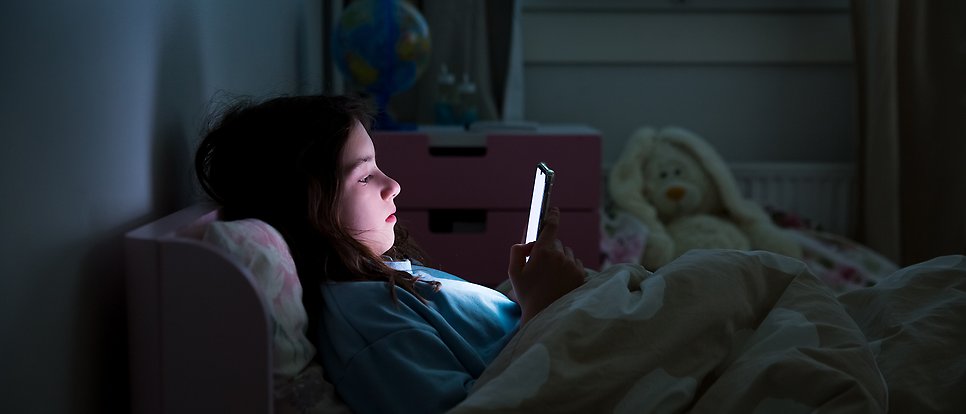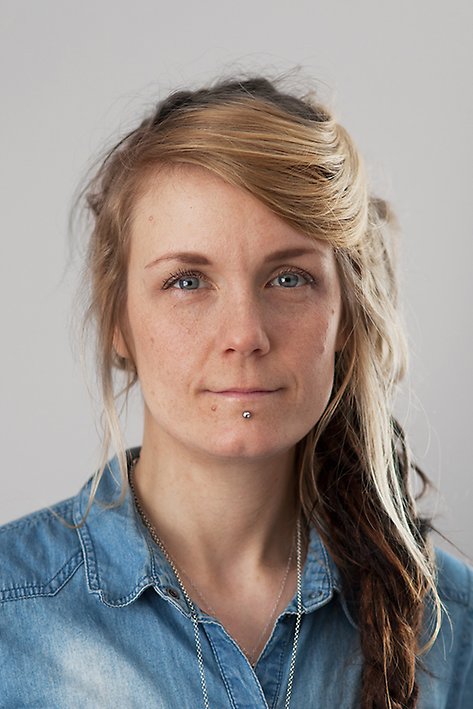Extensive screen time impairs sleep in children and young people

According to the report there is a correlation between having a mobile phone in the bedroom, using the phone during the night and poorer sleep. Photo: Getty Images
Children and young people who frequently use digital media in their free time are more likely to suffer from impaired sleep, a negative body image and depression. However, gaming does not seem to cause ill-health in young people to the same extent as we thought. These are some of the conclusions of a new report by the Public Health Agency of Sweden and the Swedish Agency for the Media, in which researchers from Uppsala University and others participated.

Lina Eklund, researcher at Uppsala University. Photo: Felicia Püschl
“What is most evident is the effect on sleep across all age groups. There is a correlation between having a mobile phone in the bedroom, using the phone during the night and poorer sleep,” explains Lina Eklund, Associate Professor at the Department of Informatics and Media.
She was one of the researchers who advised on the report “Digitala medier och barns och ungas hälsa – En kunskapssammanställning” (Digital media and children's and young people’s health – A knowledge compilation report) commissioned by the government.
One difficulty in studying how young people’s minds and bodies are affected by using screens, she says, is that digital media are such an integral part of everyone’s lives. It is therefore not easy to separate out cause and effect. For example, is someone depressed because of a lot of screen time, or are social media and games a way of trying to block out the bad mood? Is a child lonely because they spend more time scrolling on their mobile phone than talking to friends, or is it that their mobile phone is their only company?
“What is clear, and what I really take with me as a researcher, is that these things are very difficult for those who are vulnerable; whether it is due to various socio-demographic factors, a neuropsychiatric diagnosis, a physical disability, LGBTI youth, children and young people who are below the poverty line – they have more difficulties and we see more negative correlations. They will also be the most difficult groups to reach through the guidelines,” continues Eklund.
Poorer body image
Social media has sometimes been accused of spreading an unhealthy ideal of beauty. The report confirms that young people are influenced by what they see in their feeds.
“There is a clear effect in terms of having a poorer body image – especially if using social media. And there are links to eating disorders too,” says Eklund.
However, the report also shows that there are some risk behaviours to be wary of.
“If you read the part of the report that deals with children and young people’s own views, it’s clear that the negative parts are not where you sit and talk to your friends. It’s when you get stuck for hours scrolling videos on TikTok, YouTube and the like. And that is where we see an interaction design that encourages continued use, because that’s how the companies make money. It’s an interaction design that contravenes international agreements on children's rights,” says Lina Eklund.
The effects that different platforms have on the physical and mental health of children and young people varies quite widely. Computer games have often been identified in media reports as particularly harmful, but there is little research to support this.
“Most young people play with their friends or siblings, which is a positive thing. That said, playing alone can be a risk factor, and a high level of both social media and computer games usage is associated with depressive symptoms,” explains Eklund.
New guidelines in September
In September, the Public Health Agency of Sweden and the Swedish Agency for the Media will present new guidelines based on the findings of the report. Eklund can’t say anything about how they will be formulated at this point, but based on her own research she can give some tips to parents and other adults:
“Parents also need to regulate their own use to be good role models and have good mental health themselves. I believe in negotiating common rules for adults and children and safeguarding sleep, such as not having mobile phones in bedrooms. It’s not just loss of sleep that makes people tired. The links between poor sleep and various risk factors are enormous, such as poorer development, increased risk of various diseases and so on,” concludes Eklund.
Åsa Malmberg
